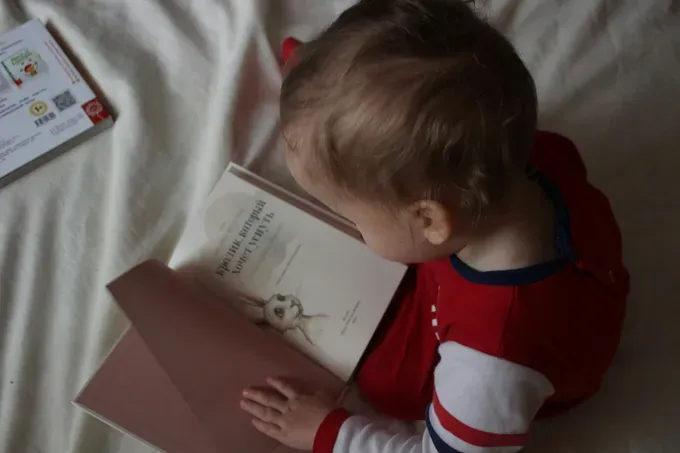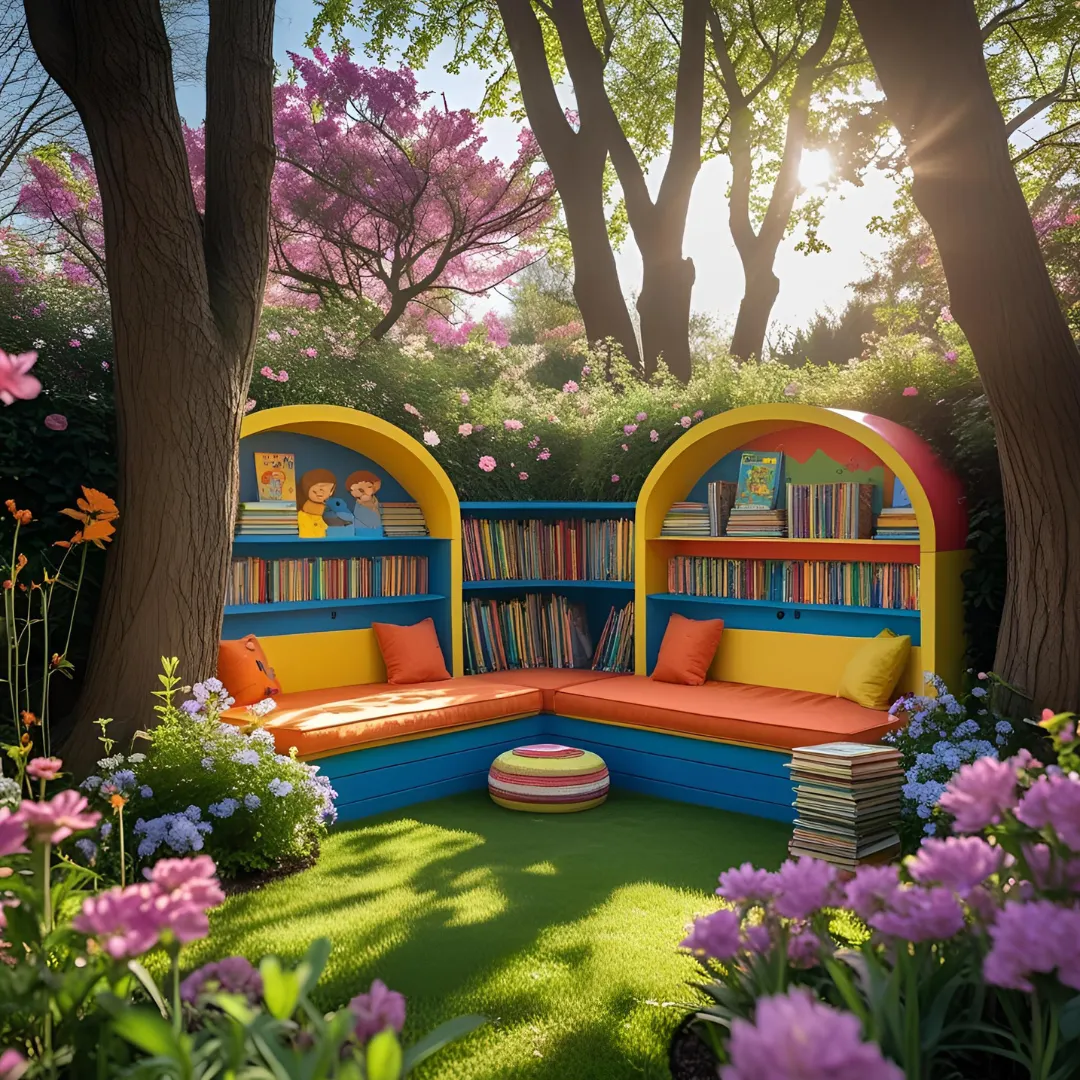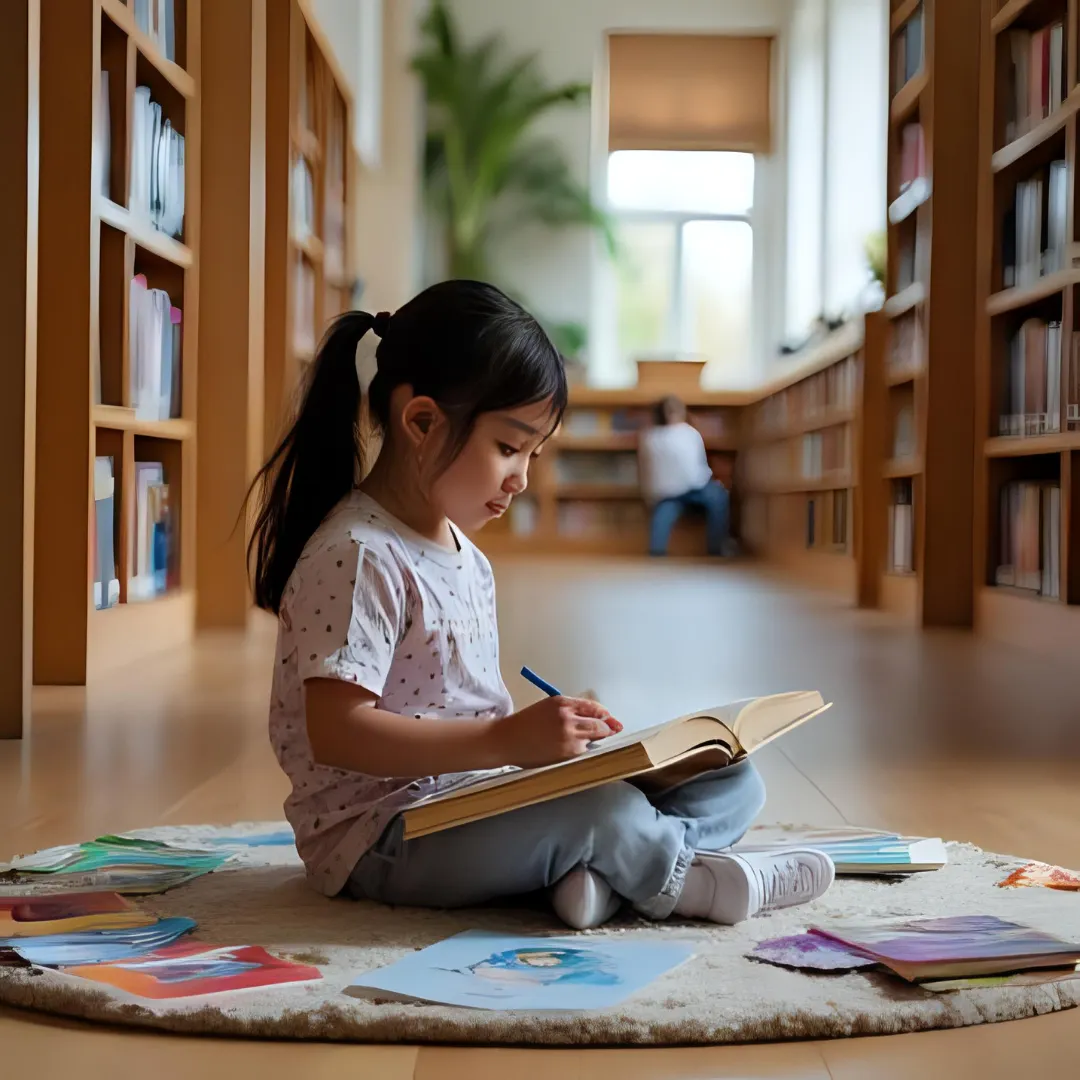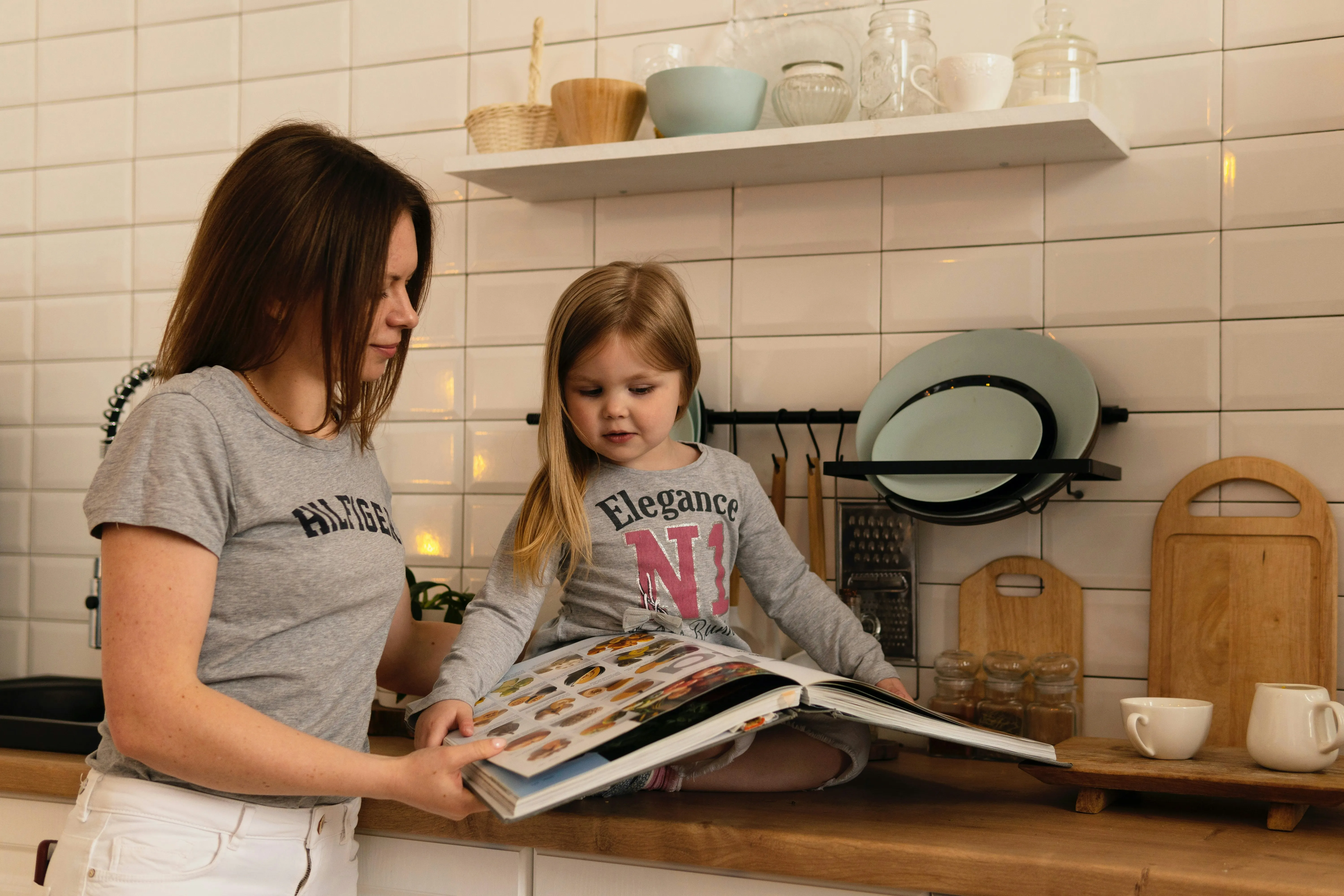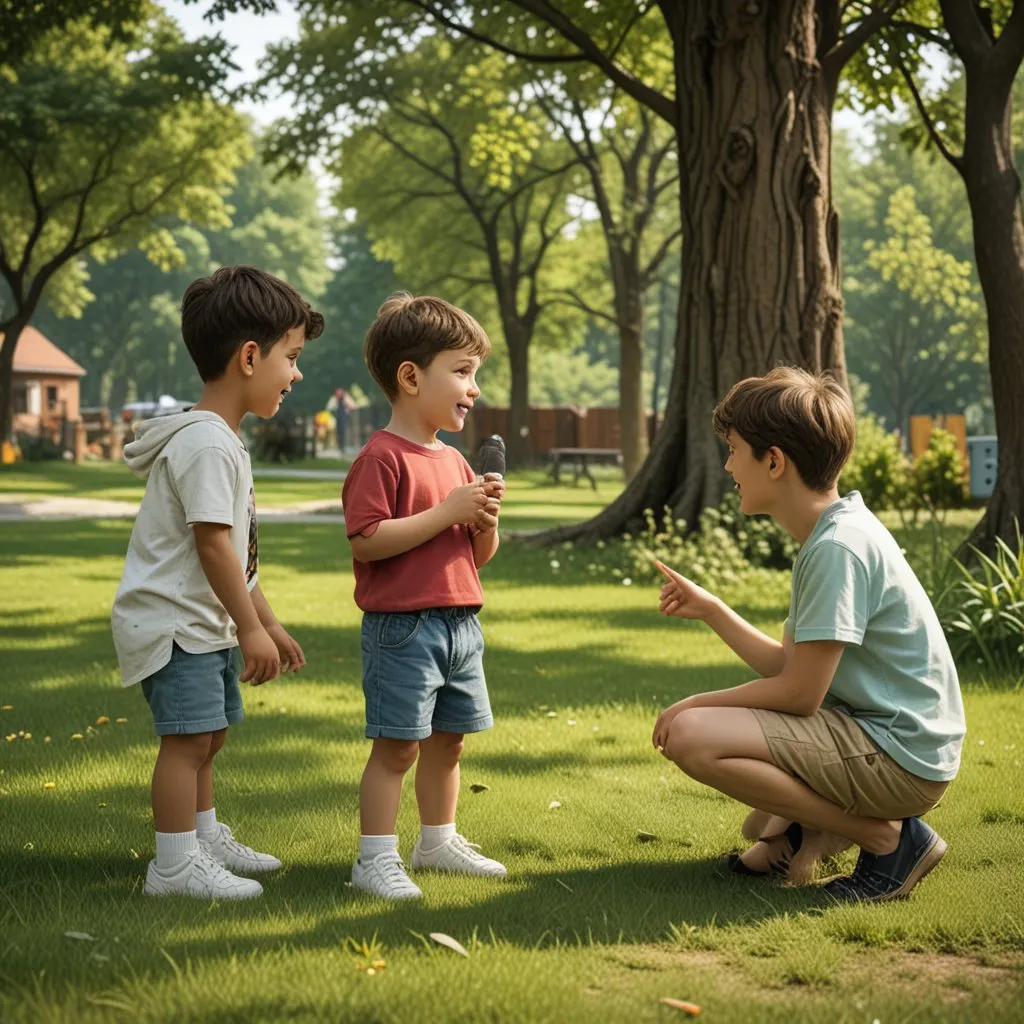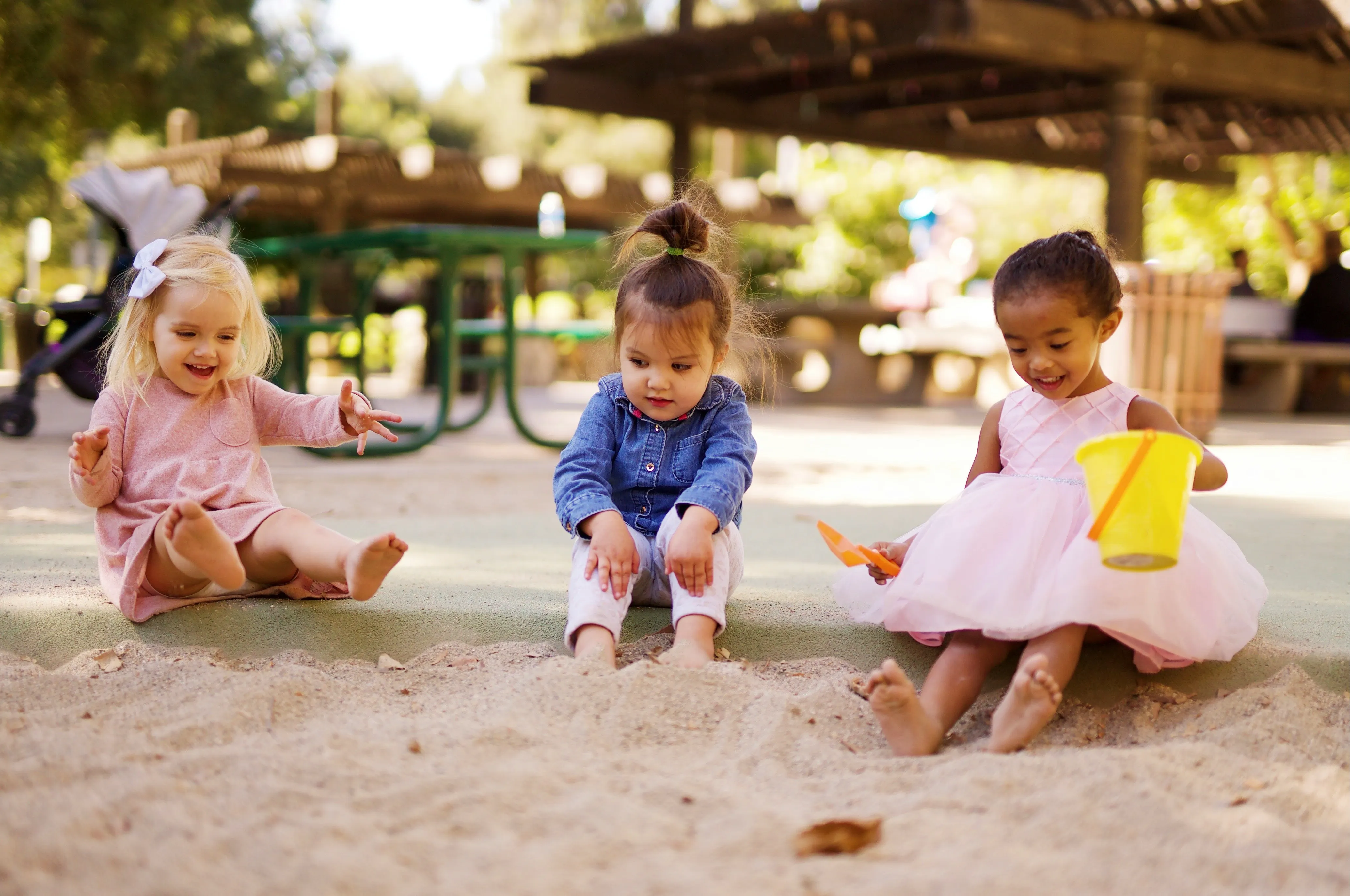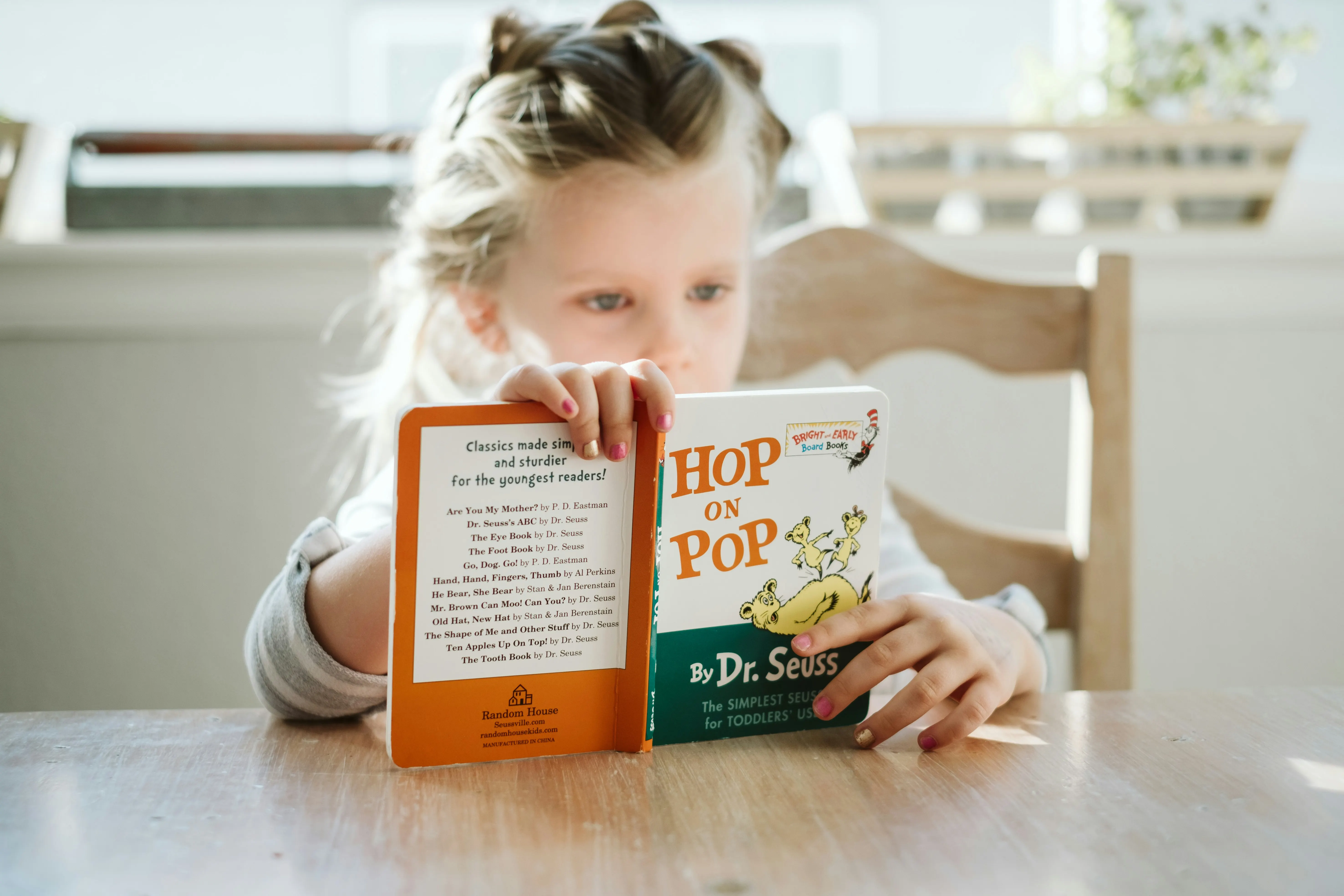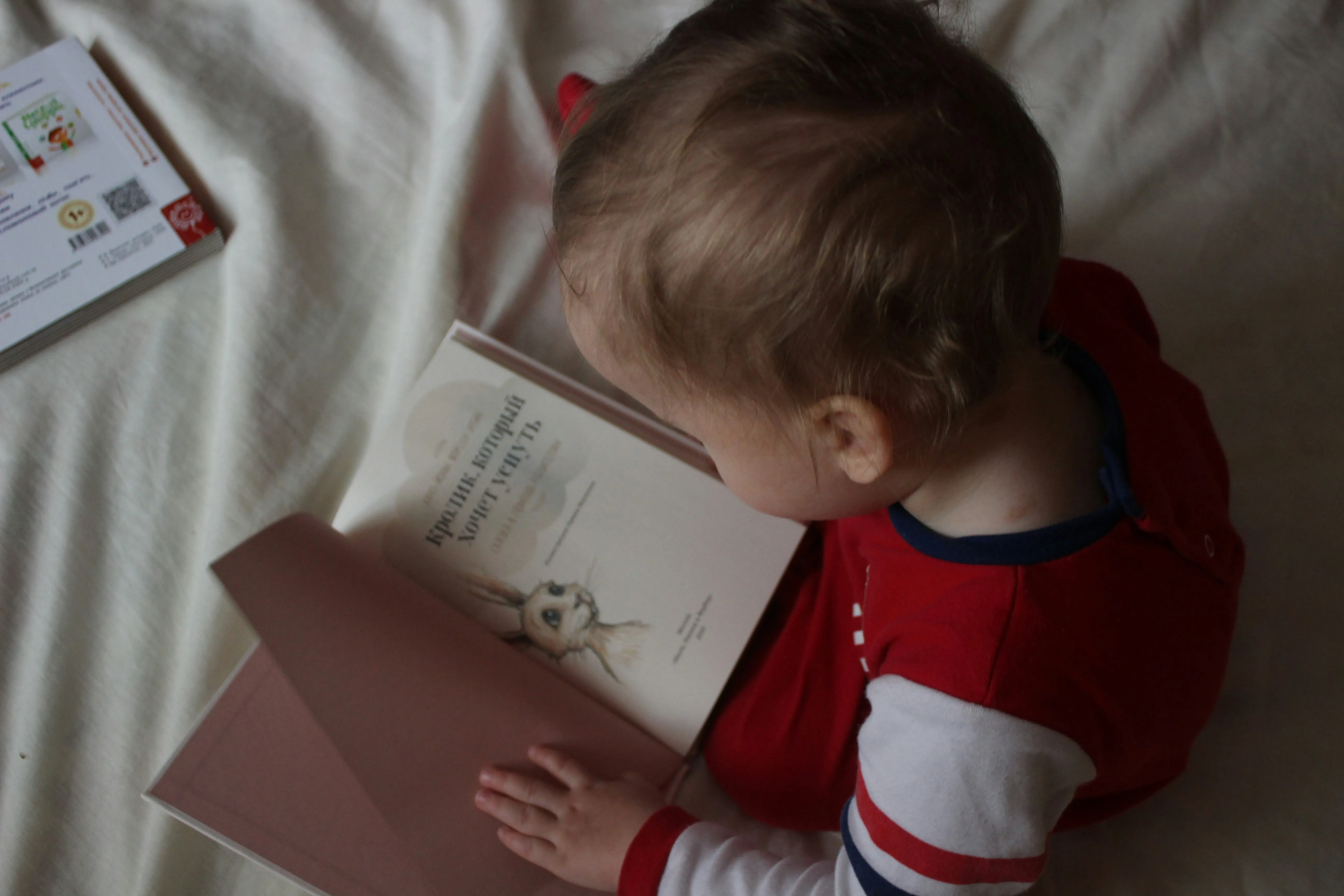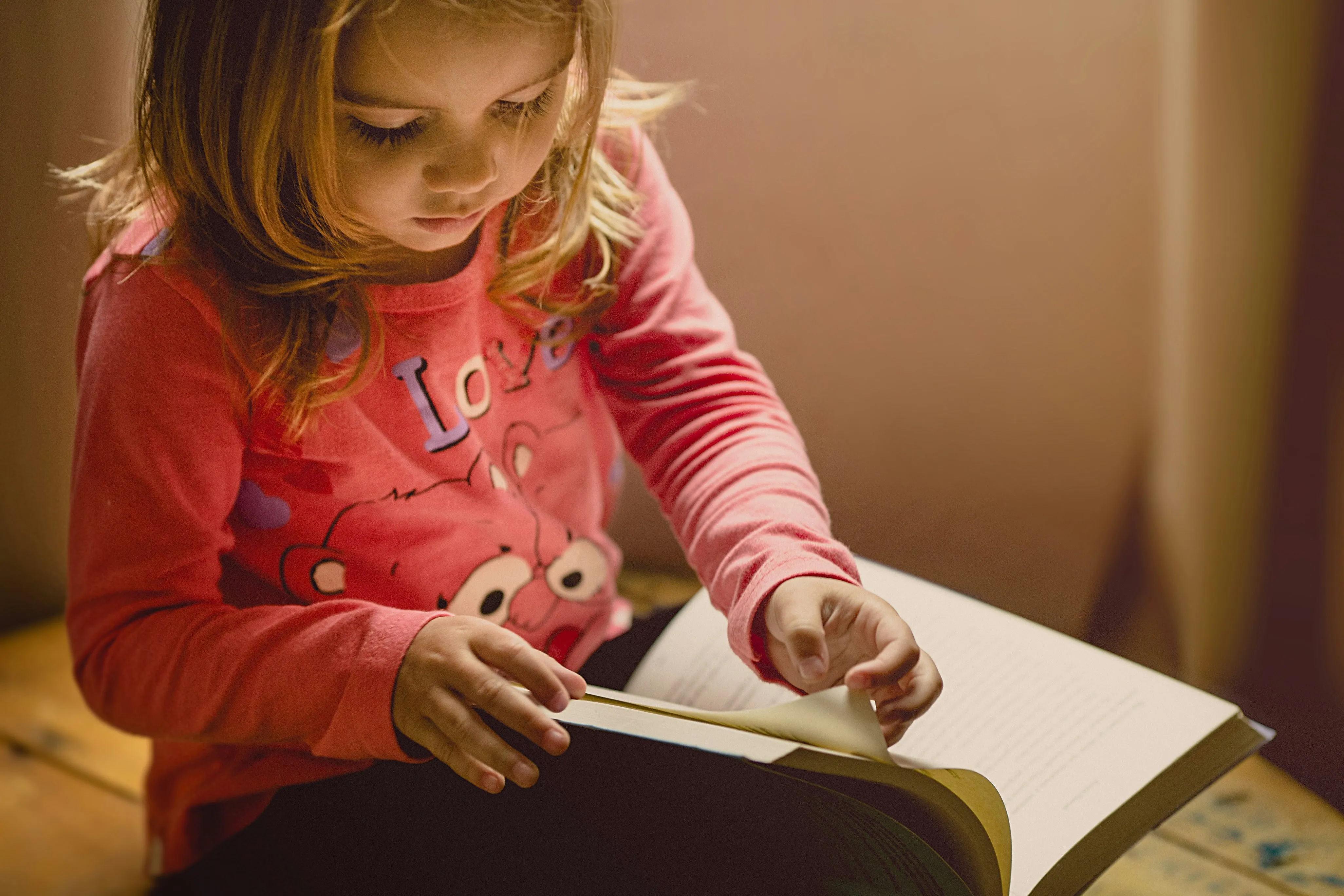Baby's First Year
Baby Firsts Explored: Navigating the Journey of Parenthood Year 1

Key Highlights
This blog explores the incredible journey of your baby's first year, highlighting significant developmental stepping stones.
- Understand the importance of early development stepping stones, from motor skills to cognitive and social-emotional growth.
- Gain insights into preparing for these stepping stones, including creating a stimulating environment and utilizing essential tools.
- Follow a step-by-step guide to celebrate and encourage your baby's firsts, such as their first words and steps.
- Learn about navigating common parenting challenges, understanding when to seek professional advice, and utilizing AI and technology for enhanced learning.

Introduction
The first year of a baby's life is a special time full of fast growth and change. From those lovely first smiles to the big moment of taking their first steps, every stepping stone shows an important step in their physical, mental, and social development. For new parents, knowing these stages and how to help their baby's growth is very important.
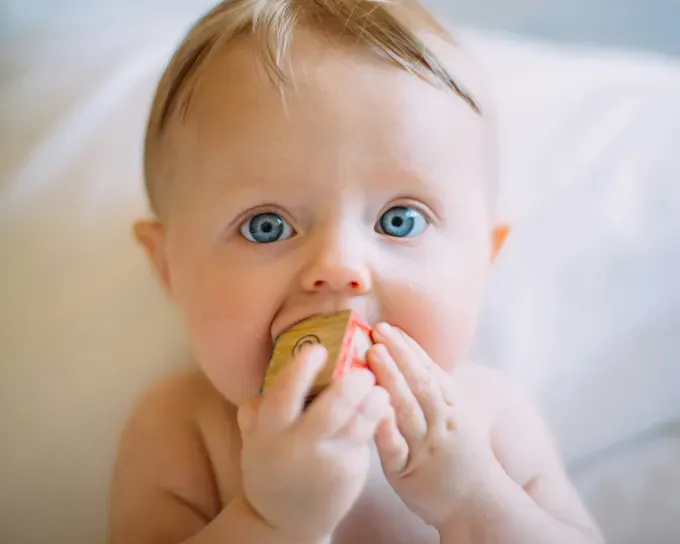
Understanding Baby's Firsts: An Introduction
"Baby's firsts" are special moments that show how infants grow and develop. These important stepping stones include physical skills like rolling over and crawling, as well as mental stepping stones like recognizing faces and learning to talk. These moments are not just great for photos but are also signs of a baby's health and happiness.
Every baby develops at their own pace. The age at which these stepping stones are reached can be very different from one child to another. Healthcare experts, like pediatricians and groups like the CDC, provide general age ranges for these stepping stones. However, it’s good to remember that these are just guidelines and not rules.

The Significance of Stepping Stones in Early Development
Early development steps are important for a child's future health in body, mind, and emotions. These steps show how children grow and learn by reaching each stepping stone in a certain order. For example, when children develop gross motor skills like rolling over, sitting up, crawling, and eventually walking, they can explore their surroundings. This exploration helps them think and learn better.
As babies start moving around, they see new things and face new challenges, which helps their cognitive development. Likewise, early language development includes stepping stones like babbling, recognizing their name, and saying their first words. This development affects their thinking and social-emotional skills too. Knowing how these stepping stones connect is key to understanding how a child grows.
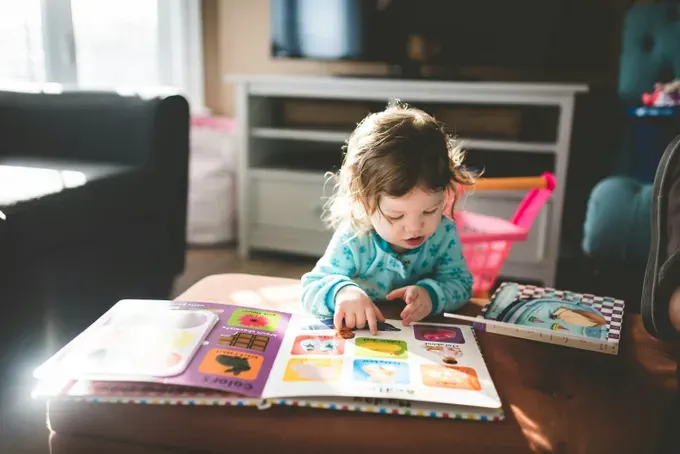
How Our Unique Approach Enhances Childhood Education
Our method looks at childhood education as a whole. We focus not only on schoolwork but also on building a child's social skills, emotional health, and physical wellness. We want to create a safe and exciting place where kids can explore, try new things, and learn at their own pace.
Our lessons include fun activities suitable for their age that help with language development. These include songs, rhymes, and storytelling. We know that each child is different, with their own strengths and areas to grow. That's why we offer personal support for each child's needs. This way, they can feel strong and succeed in reaching their full potential.
Preparing for Your Baby's Stepping Stones Moments
Getting ready for your baby's growth stepping stones means making a helpful and fun space. Spend quality time with your baby by talking, singing, and reading to them often. Give them tummy time to help build their neck and shoulder muscles. This is important for head control and future stepping stones.
Also, make sure your home is safe for a baby who can move around. Keep heavy things secure, put up safety gates on stairs, and cover electrical outlets.
Essential Tools and Resources for New Parents
Navigating baby products can feel like a lot. However, some tools are very helpful for your baby’s growth. Here are a few you might need:
- Playmats: Soft playmats are great for tummy time. Tummy time is important for building neck strength and motor skills.
- Toys: Choose toys that match your baby’s age. Look for toys that help them reach, grasp, and explore with their senses, like rattles, soft blocks, and teething toys.
- Books: Reading to your baby, even if they can’t understand yet, helps with language development. It also builds a bond and shows them the joy of books.
Remember, your interaction matters most. While toys and tools are nice to have, your love and time with your baby are what really matter for their development.

Creating a Stimulating Environment for Your Baby's Growth
Babies grow best in places that catch their interest and let them explore. You can make a fun space by adding toys, books, and sensory activities that fit their age. A colourful mobile over the crib, different things to touch, and even regular items from the house, like wooden spoons or measuring cups, can be exciting toys for your baby.
Going to the park, taking walks in a stroller, or sitting on the floor together with toys can give your baby great sensory experiences. Remember, making a fun environment doesn’t need costly toys or fancy setups. It's all about giving your baby chances to connect with the world, encouraging curiosity, and a desire to learn.
A Step-by-Step Guide to Celebrating Baby's Firsts
Celebrating your baby's firsts doesn’t have to be fancy. You don’t need big parties or expensive gifts.
- The best way to celebrate is by being there, paying attention, and showing your happiness.
- Be excited about their first smiles. Play with them during tummy time, and talk to them every day.
- Take photos, and videos, or write in a journal to remember these moments.
This will help you capture the joy of your baby’s growth. These memories will be special for you forever.
Step 1: Recognizing the First Signs of Development
Recognizing the early signs of your baby's growth is a wonderful part of being a parent. Every baby grows at their own pace, but some skills usually show up in specific months of age.
- In the first month, babies show reflexes like rooting and sucking, which are important for feeding. They also startle at loud sounds, showing they are starting to hear.
- By two months, you will see them becoming more aware of the world around them. They will begin to smile socially and track objects with their eyes. They might also turn their heads towards sounds, showing growth in their vision and hearing skills. Watching your baby during these early months is special.
It helps you see the amazing changes they go through, and it builds your connection with them.

Step 2: Encouraging Your Baby’s First Words
Encouraging your baby's first words is an exciting time for parents and their little ones. Language development starts before those first real words. It begins with cooing and babbling. Around six months old, your baby's cute gurgling sounds will change. They will start to babble more, trying out sounds like 'baba', 'dada', and 'mamma'.
It is easy to think these sounds have meaning, but true language development is about understanding. Keep talking to your baby. Respond to their babbles and explain what you are doing every day. Also, encourage turn-taking. This can be as simple as sharing smiles and coos.
Doing this will help your baby build their conversational skills.

Step 3: Supporting Your Baby's First Steps
The first steps your baby takes are a huge moment. It brings joy, pride, and some bittersweet feelings as they move from crawling to walking. This big change usually happens around their first birthday. It shows that they have spent months growing their motor skills. Before they walk, you might see your baby pull themselves up to a standing position. They might cruise along furniture and even take a few steps while holding your hand.
To help with these first attempts, make sure the area is safe and supportive. Remove anything that could cause them to trip. Have sturdy furniture nearby for them to hold onto, and offer your hand for support and confidence. Most importantly, celebrate their efforts! Cheer them on and give positive feedback to boost their confidence and make them excited about mobility.
Step 4: Documenting the Journey for Posterity
The first year of your baby's life is full of special moments that will soon pass. It’s important to capture this amazing journey with photos, videos, or by writing. This way, you can keep these memories forever, and create a wonderful record of your baby's growth and change.
Start by taking pictures from the day they are born. Capture their tiny hands and feet, their first bath, and how they snuggle in your arms. As they get older, remember to document each loving stepping stone, like their first smile, when they start to crawl, their cute laughter, and, of course, their first steps.
Also, don’t forget to write down stories about their growing personality, their favourite toys, and the funny sounds they make when learning to talk.
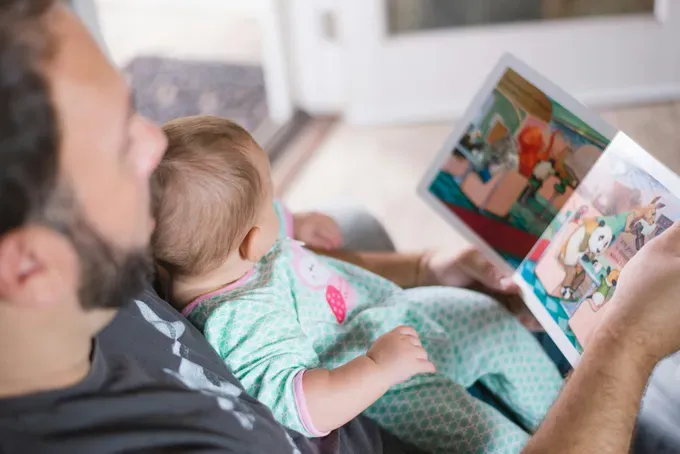
Navigating the Challenges of Parenthood
Parenting, especially in your baby's first year, can be very rewarding but also hard work. Common worries include problems with feeding, sleep issues, teething pain, and always thinking about your baby's health. Keep in mind that many parents have the same concerns as you.
Talk openly with your partner, family, or friends. It’s okay to ask for help when you need it. Trust your instincts, and don’t hesitate to reach out to your pediatrician for advice and comfort.
Common Concerns in the First Year
A baby’s first year is a time of big growth and change. During this year, there are many important stepping stones, but some challenges can happen too. Parents often face issues like feeding troubles, sleep problems, and teething. It's normal to feel unsure sometimes and look for signs that their baby is doing well.
If you have worries about your baby’s feeding, weight gain, or health, talk to your pediatrician. Sleep problems are common, but setting up regular bedtime routines and a good sleep space can help a lot. It’s important to talk openly with your partner, family, and health workers.
This way, you can handle these challenges and keep your baby healthy in their first year.
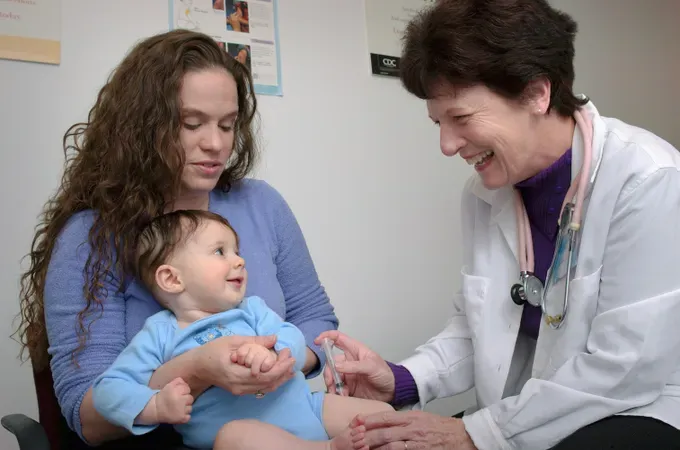
When to Seek Professional Advice
While some differences in growth are normal, it's important to watch your baby's progress. If you notice any major delays or have worries, talk to a doctor. Your first step should be to see your pediatrician. They know how to find issues and suggest the right help. They will check your baby’s growth and overall health and answer any questions you have.
For example, if your baby isn’t reaching for things by six months, is having trouble feeding or swallowing, or showing odd behaviors, you need to contact your pediatrician. Getting help early is very important for fixing any delays. This will help your baby get the care they need to grow well. Listen to your gut as a parent and reach out for professional advice when you think it's necessary.
It’s always smart to be careful about your little one’s health and growth.
Beyond the Basics: Enhancing Your Child's Learning Journey
As technology changes quickly, using AI and suitable apps in early education can help your child learn better. These tools can provide fun learning games, customized content, and keep track of their progress. This can support the way they learn in school.
Still, it is important to find a good balance. Support a passion for reading by setting up a comfy reading space. Also, help them explore the world through playful activities and discovery.
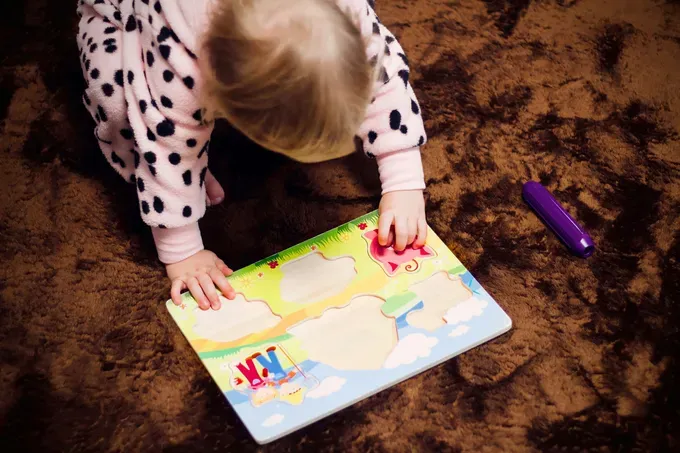
Incorporating AI and Technology in Early Education
Integrating AI and technology in early education can provide interactive and personalized learning experiences for young minds. Educational apps and games can help develop essential skills such as language comprehension, problem-solving, and creativity. Here are a few examples:
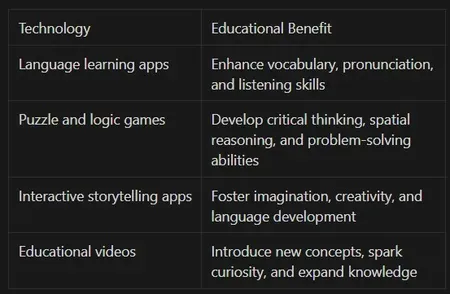
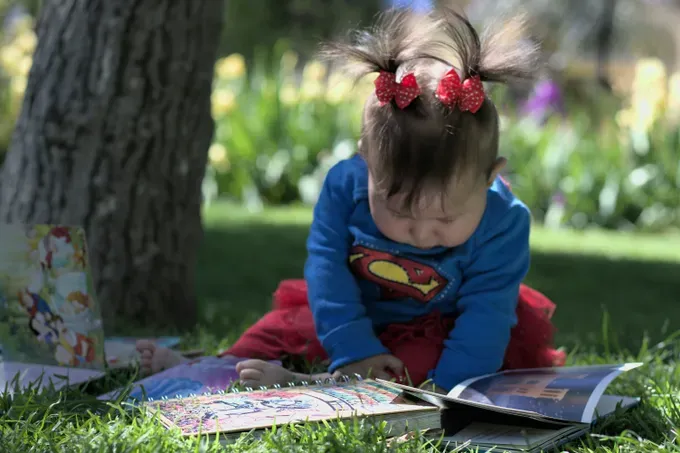
Selecting the Right Educational Tools and Books
Selecting the right educational tools and books for your child is very important. This helps with their cognitive development and builds a love for learning. Look for toys that help with problem-solving, creativity, and motor skills. Good options include building blocks, puzzles, and art supplies.
When it comes to books, pick ones with bright pictures, fun stories, and easy-to-understand words. Board books with different textures, lift-the-flaps, and interactive features really catch a baby’s attention. They also help in sensory exploration. The aim is to spark curiosity and make learning fun. This way, your child will have a positive view of education from an early age.
Conclusion
As we go through being parents, our baby has a special spot in our heart. These important moments show how our little ones grow and change. From their first steps to their first words, each time is special. When we create a fun environment and write down these moments, we celebrate what they achieve and make good memories. Being a parent can be challenging, but getting help from experts and using technology can help your child learn better. Embrace each step with love. Remember to enjoy and share these wonderful moments on social media. This helps connect you with other parents on this amazing journey of parenting.
Frequently Asked Questions
What are Baby's Firsts?
A baby's firsts are the important stepping stones reached in the first year. These include physical achievements like the first smile, rolling over, sitting up, crawling, and walking. There are also cognitive and social stepping stones. These involve trying to grab small objects, babbling, and finally saying those exciting first words.
What Are the Most Important Stepping Stones in the First Year?
The main stepping stones in a baby's first year are important. They include developing gross motor skills, like rolling over and sitting up. Babies also work on their fine motor skills by mastering the pincer grasp. Achieving steady head control is another key step. Lastly, they start to make sounds and begin early language development.
BONUS!
List of Baby Firsts
in the First 12 Months
Here's a comprehensive list of baby firsts typically occurring within the first year:
- First Smile: Social smiling begins around 2 months
- First Doctor's Visit: Usually within the first week after birth
- First Immunizations: Typically start at the 2-month check-up
- First Coo: Babies often start cooing around 2-3 months
- First Time Lifting Head: While on tummy, lifts and holds head up (3-4 months)
- First Laugh: Often occurs around 4 months
- First Time Rolling Over: Rolls from back to tummy and tummy to back (4-6 months)
- First Solid Food: Typically introduced around 6 months
- First Tooth: Often appears between 4-7 months
- First Time Sitting Unsupported: Sits without support (6-8 months)
- First Crawl: Starts to move with alternate leg and arm movement (6-10 months)
- First Wave Bye-Bye: Often occurs around 9 months
- First Pincer Grasp: Picks up small objects with thumbs and fingers (7-9 months)
- First Steps: Usually occurs between 9-12 months
- First Word: Most babies say their first word between 9-12 months
- First Time Standing Unaided: Stands without support (10-12 months)
- First Pretend Play: Plays imitative games such as pretending to use the phone (10-12 months)
Remember that every baby develops at their own pace, and these stepping stones are general guidelines. Always consult with a pediatrician if you have concerns about your baby's development.
How Can I Support My Baby's Emotional Development?
Support your baby's feelings by paying attention to their signs in a kind and steady way. Create a loving and safe space for them, so they can explore their emotions at their own pace. Join in positive activities like cuddling, speaking gently, and playing simple games.
What Are the Signs That My Baby Is Ready to Walk?
Signs that your baby might be ready to walk include pulling up to a standing position. They may also cruise along furniture. You might see them take hesitant steps while holding your hand for support. They will show more confidence in their balance and coordination too.
The first year of your baby's life is an extraordinary time, filled with rapid growth and magical moments. This comprehensive checklist will guide you through the essential stepping stones and provide actionable steps to support and celebrate your baby's development. Let's embark on this remarkable journey together!
Baby First's Check List
Fill Out The Form For A Free Downloadable PDF Checklist
1. Preparing for the Journey The first step is creating a nurturing and stimulating environment for your baby.
Here are some key elements:
- [ ] Safe Sleep Space: Ensure a safe crib with a firm mattress and fitted sheets. Avoid pillows, blankets, and soft toys.
- [ ] Tummy Time Area: Designate a soft and secure spot for daily tummy time, essential for strengthening neck and shoulder muscles.
- [ ] Baby-Proofing: Secure furniture, cover electrical outlets, and install safety gates.
- [ ] Interactive Space: Fill the environment with age-appropriate toys, books, and sensory activities to encourage exploration and learning.
2. First Month: The World of Newborns Your newborn's first month is all about adjustment and discovery.
Key stepping stones include:
- [ ] First Doctor's Visit: Schedule a check-up within the first week.
- [ ] First Immunizations: Begin the recommended immunization schedule at the 2-month mark.
- [ ] Bonding Time: Establish a strong emotional connection through skin-to-skin contact, gentle talking, and eye contact.
3. Months 2-3: Early Stepping stones and Sounds As your baby grows, you'll witness the first signs of social and cognitive development:
- [ ] First Smile: Look for social smiling around 2 months.
- [ ] First Coo: Listen for the early sounds of cooing.
- [ ] Tracking Objects: Encourage visual tracking with colorful toys and mobiles.
4. Months 3-4: Head Control and Laughter Support your baby's physical development as they gain better control over their body:
- [ ] Head Lifting: Provide ample tummy time for head lifting and strengthening muscles.
- [ ] First Laugh: Enjoy the delightful sound of their first laugh.
5. Months 4-6: Rolling and Exploring This period marks significant physical achievements:
- [ ] Rolling Over: Encourage rolling from back to tummy and vice versa.
- [ ] Introduction to Solids: Around 6 months, introduce solid foods while continuing breastfeeding or formula.
- [ ] Teething: Watch for the appearance of the first tooth and manage teething discomfort.
6. Months 6-8: Sitting and Sensory Play Your baby will start mastering sitting and fine motor skills:
- [ ] Sitting Unsupported: Support their efforts to sit without assistance.
- [ ] Sensory Activities: Engage in activities that stimulate their senses and curiosity.
7. Months 6-10: Crawling and Mobility Witness the excitement of your baby's increasing mobility:
- [ ] First Crawl: Provide a safe and open space for crawling and exploration.
- [ ] Interactive Play: Use toys and games to encourage reaching, grasping, and crawling.
8. Months 7-9: Fine Motor Skills During this time, fine motor skills develop rapidly:
- [ ] Pincer Grasp: Encourage picking up small objects with thumb and fingers.
- [ ] First Words: Respond to babbling and encourage language development through constant interaction.
9. Months 9-12: Walking and Talking As your baby approaches their first birthday, major stepping stones unfold:
- [ ] First Steps: Celebrate the monumental moment of their first steps.
- [ ] Standing Unaided: Provide support for standing and walking.
- [ ] First Words: Cherish the joy of hearing their first spoken word.
10. Celebrating the stepping stones Every stepping stone deserves recognition and celebration:
- [ ] Documenting the Journey: Capture special moments through photos, videos, and a baby journal.
- [ ] Simple Celebrations: Celebrate achievements with hugs, cheers, and small treats.
Navigating Challenges
11. Addressing Common Concerns Understand that challenges are part of the journey and can include:
- [ ] Feeding Issues: Consult with a pediatrician if you have concerns about feeding, weight gain, or allergies.
- [ ] Sleep Problems: Establish a consistent bedtime routine and create a soothing sleep environment.
12. When to Seek Professional Advice Stay vigilant about your baby's development and seek medical advice if you notice:
- [ ] Developmental Delays: Consult a pediatrician if your baby shows significant delays in reaching stepping stones.
- [ ] Health Concerns: Address any persistent health issues or abnormal behaviors promptly.
Incorporating Technology
13. Enhancing Learning with Technology Modern technology can complement traditional learning methods:
- [ ] Educational Apps: Utilize apps that offer interactive storytelling, puzzles, and language games.
- [ ] Moderation: Balance screen time with physical activities and face-to-face interactions.
14. Selecting Educational Tools and Books Choose toys and books that foster development:
- [ ] Age-Appropriate Toys: Opt for building blocks, puzzles, and art supplies to stimulate creativity and problem-solving.
- [ ] Interactive Books: Select board books with textures and interactive features to engage your baby's senses.
Conclusion
The first year with your baby is a profound journey marked by incredible growth and unforgettable moments. By preparing thoughtfully, celebrating each stepping stone, and navigating challenges with resilience, you build a foundation for a bright future. Embrace each moment with love, document the memories, and create a supportive environment that nurtures your baby's potential.
Citations:
[1] https://childmind.org/guide/parents-guide-to-developmental-milestones/
[2] https://www.healthlinkbc.ca/healthlinkbc-files/your-childs-development-birth-3-years
[3] https://www.understood.org/en/articles/developmental-milestones-from-birth-to-age-1
[4] https://www.allforkids.org/news/blog/why-the-first-5-years-of-child-development-are-so-important/
[5] https://pathways.org/all-ages/milestones/
[6] https://www.thebump.com/a/baby-milestone-chart
[7] https://www.cdc.gov/ncbddd/actearly/milestones/milestones-3yr.html
[8] https://www.cdc.gov/ncbddd/actearly/milestones/index.html



